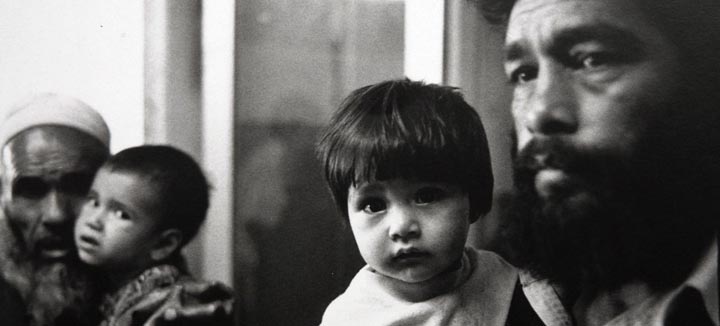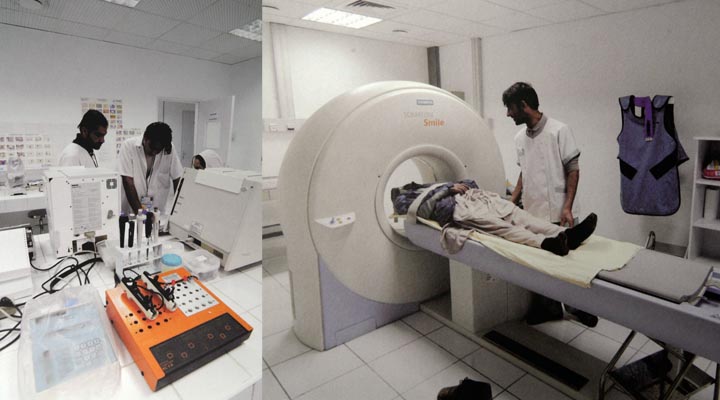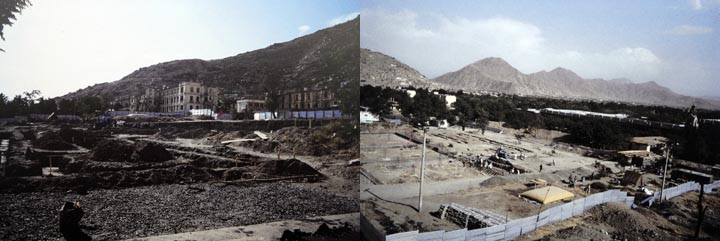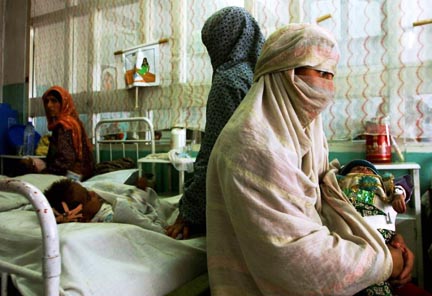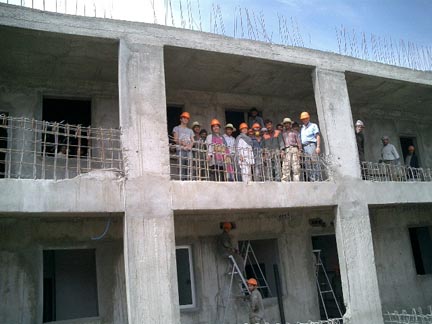After 30 years of civil strife, Afghanistan has almost no national health system in place. This means that the country faces a serious development challenge, and the international community has to build the public health and health care delivery systems virtually from scratch. Efforts to rebuild the health care system have been inadequately funded by the US reconstruction efforts requiring assistance from international organizations and the private sector. The average life expectancy in Afghanistan is 42 years.
Afghanistan’s health problems include polio, scurvy, malnutrition, anemia, tuberculosis, whooping cough and a high maternal mortality rate. A recent UNICEF report by the United Nations Assistance Mission in Afghanistan describes the country’s maternal mortality as one of the highest in the world with a woman dying of pregnancy-related causes every 27 minutes of every day. Sadly, infant mortality rates are also amongst the highest in the world -more than 25 percent of children die before their fifth birthday, and 40 percent of children deaths are due to such preventable causes as diarrhea and respiratory infections and inadequate immunizations. More than half of all Afghan children are suffering from inadequate dietary vitamins and minerals especially iron and iodine deficiency leading to anemia and mental impairment respectively.
The Canadian Government continues to invest in cost-effective micronutrient programs which are critical for the health and well-being of millions of children. According to World Health Organization estimates, Afghanistan has among the highest Tuberculosis (TB) rates in the world with approximately 70,000 new TB cases occurring annually and 20,000 people in the country dying from TB every year. Afghanistan is one of the four countries where polio is still endemic (Nigeria, India and Pakistan are the other three) and recent immunization campaigns (polio, dpt3 and measles) have been successful in vaccinating 60 percent of the children in many provinces (US Aid 2006)
Research has shown that in most cases of nation-building operations, support for health — including basic sanitation, nutrition programs and medical care — has been a key component of a successful effort to establish stable democratic governments after conflicts. Most of the health problems in Afghanistan today are not amenable to quick fixes, and require long-term investment in nutrition programs, the creation of sanitation systems, and the development of a new generation of health care professionals (Rand April 2006).
In 2004 AWF supported the French charity, La Chaine de l’Espoir and its New York affiliate, Surgeons of Hope Foundation in completing construction of the Mother-Child Hospital in Kabul. Funding for the Mother and Child hospital was raised by AWF at the Dec 2003 high profile benefit “Time to Give” held at the St. Regis Hotel in Century City in Los Angeles. The first wing, a 93 bed unit, was completed in September of 2005.
Subsequent partnerships between La Chaine de l’Espoir, the Government of Afghanistan, the Government of France and the Aga Khan Development Network (AKDN) have now transformed the former Mother and Child Hospital into a tertiary medical center now known as the French Medical Institute for Children (FMIC). FMIC provides modern diagnostic, medical and surgical techniques and offers in-patient and out-patient services in pediatric medicine and surgery, cardiology, and orthopedics. Its diagnostic and treatment technologies are state-of-the-art, including CT scanning, general radiology, ultrasound, and a well-stocked pharmacy. Under the partnership agreement, the French and Afghan governments as well as AKDN will provide financial support for administrative staff and medical training, and La Chaîne de l’Espoir will help to bring top-ranked surgeons, nurses and medical technicians from France, Europe and North America to practise at the hospital on rotating assignments. The AKDN will guide its future expansion up to 250 beds on adjacent land provided by the Government of Afghanistan. (Aga Khan Development Network April 2006).
